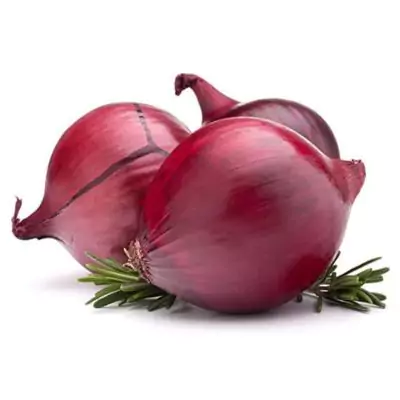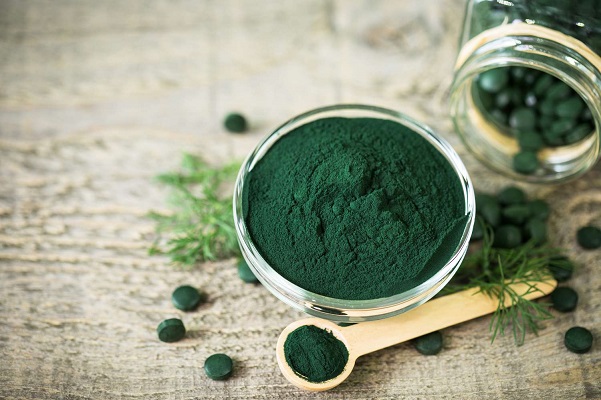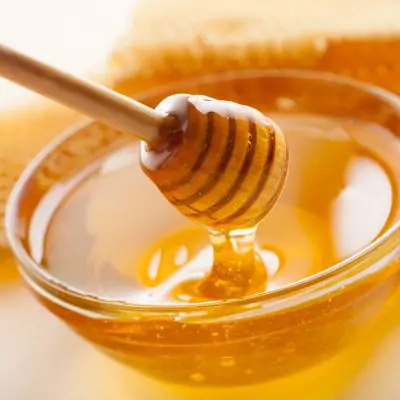On This Page
Overview
The most often used ingredient in Indian cuisine and one of the most grown and eaten veggies worldwide is the onion. An herb with an underground bulb and a stem, Allium cepa, sometimes known as onion, is a perennial plant that survives for several years. Onions are highly valued superfoods and kept as pickles because of their taste and nutritional advantages. Selenium, potassium, and vitamins B1, B2, and C are all abundant in onions. They are capable of treating stomach cancer, cardiac conditions, and diabetes. They contain allyl disulfide and allium. These substances may lower the chance of developing cancer, keep blood sugar levels in check, calm inflammation, and treat infections.
Synonyms of Onion
- Allium cepa
- Asal
- Basl
- Cebolla
- Yellow Bermuda onion
- Piyaj
- Piyaz
- Ralu lunu
- Sibuyas
- Loyon
Nutritional Facts of Onion
| Calories: | 40 |
| Water: | 89% |
| Protein: | 1.1 grams |
| Carbs: | 9.3 grams |
| Sugar: | 4.2 grams |
| Fiber: | 1.7 grams |
| Fat: | 0.1 grams |
Phytochemical Constituents of Onion
- Organosulfur compounds
- Phenolic compounds
- Polysaccharides
- Saponins
Therapeutic Uses of Onion
- Onion for infections
An efficient antibacterial agent for treating infectious disorders is onion. Onion extracts have been reported to be effective against a variety of fungi, bacteria, and viruses.
- Onion for obesity
onions had anti-obesity qualities. Onion peel extract reduces triglyceride and lipid levels in cell culture. Eating onions significantly reduced body weight, body mass index, and waist-hip ratio.
- Gut Health
The quantity of inulin, a fiber found in onions, serves as a prebiotic by feeding the gut flora, encouraging the development of healthy bacteria, and enhancing gut health. Additionally effective at preventing constipation, controlling blood sugar, enhancing nutritional absorption, and increasing bone density is the inulin found in onions.
- Promote Respiratory Health
Onions can help people with respiratory conditions including asthma and allergic rhinitis.
Onions’ anti-inflammatory qualities can also relieve respiratory conditions. You can simply add onions to your diet if you have a respiratory disease to get faster relief. Your salads and other dishes should have onions.
- Onion for the brain
Onion’s ability to protect the brain has been investigated by researchers. Increasing the brain’s antioxidant levels exerts a brain-protective impact. Alzheimer’s disease can be managed and controlled with the help of onions.
Home Remedies Onion
- Make Skin Glow
Onion is very useful for skin, it makes your skin glowing. All you need for this onion face mask is 2 teaspoons of gram flour, 1/2 tablespoons of freshly extracted onion juice, 1/2 teaspoon of milk, and a dash of nutmeg.
Combine all the ingredients and stir until thick paste forms. In case the pack gets too thick, you can add more milk. You can also add a few dots of lavender essential oil to the pack if the smell of onions is too overpowering. Spread the mask evenly to your face and neck after cleansing your skin. After the mask has dried, which could take 20 minutes, gently massage milk over the skin to remove it.
- Treat Stings And Bites
Stings and bug bites can be relieved with onions. All you have to do is apply an onion slice to the bite or sting. The onion’s anti-inflammatory characteristics aid in lessening the burn, itching, and swelling brought on by insect and bug bites.
- Promote Hair Growth
Applying onion juice to the hair, scalp, and hair follicles helps improve blood flow to the hair follicles and promotes hair growth. You may also get thicker hair as a result.
Simply massage your scalp and hair with fresh onion juice. After 15 minutes, let it on and then wash as usual with shampoo.

Have A Health Issue?
Consult Online
- Dr. Sahil Gupta (B.A.M.S., M.H.A.)
Ayurvedic Allergy Specialist
CEO & Founder of IAFA®
Ayurvedic Aspects of Onion
According to Ayurveda, onions’ Snigdha, or greasy, roman, or healing characteristics, can aid in reducing dryness, preventing hair fall, and promoting hair growth. It can be used in a variety of ways, including oil, pastel, and onion juice. Additionally, onions have aphrodisiac properties, which can lengthen erections. However, those who have Irritable Bowel Syndrome (IBS)should moderate their onion consumption as excessive onion consumption can result in some digestive issues. Vata and Kapha are both calmed down by it, however, Pitta is not. It can be used as food.
It is aphrodisiac and hefty. Strength and hunger are encouraged.
Daily Dose: It has been recommended to consume 50-100 gm of fresh onion on a daily basis.
Side Effects of Onion
- Bad Breath
Onions’ tendency to leave you with bad breath and body odor are one of the most well-known disadvantages of eating them.
Although it is uncommon, some might experience allergic responses to onions, especially onion seeds, which manifest as skin rashes, eye-watering, and itching when in contact with onions or onion extracts.
- Heightens Symptoms of IBS
IBS sufferers frequently experience triggers that exacerbate their symptoms, such as stress and particular meals. One of these foods that can irritate people is onions.
- Diabetes
Blood sugar may be lowered by onions. If you have diabetes and use onions sparingly, be sure to closely monitor your blood sugar.
Conclusion
The substantial nutrient content of onions, which includes vitamins, folate, iron, and potassium, is responsible for their health advantages. Onions come in a variety of forms and can be eaten either raw or cooked. They might lower the risk of glaucoma, gastric ulcers, cancer, and cardiovascular disease. They may also improve digestion, immunity, respiratory health, and blood sugar levels. Onions can also heal dandruff and hair loss, as well as slow the effects of aging. However, excessive drinking may result in poor breath and gastrointestinal burning. Therefore, use caution and limit your intake. If you face any type of side effect from onions or you experience onion allergy you can consult Dr. Gupta at IAFA®, he uses herbs to treat all types of allergies.
References
- https://www.frontiersin.org/articles/10.3389/fnut.2021.669805/full#:~:text=Onion%20contains%20diverse%20phytochemicals%2C%20including,major%20bioactive%20constituents%20of%20onion.
- Akash MS, Rehman K, Chen S. Spice plant Allium cepa: dietary supplement for treatment of type 2 diabetes mellitus. Nutrition. 2014;30(10):1128-1137.25194613










